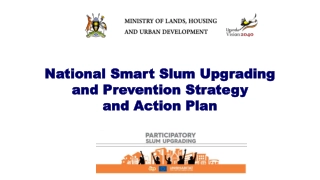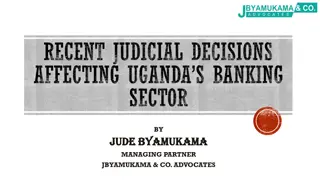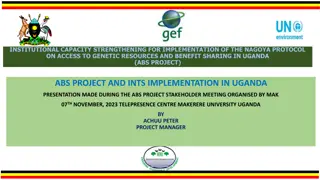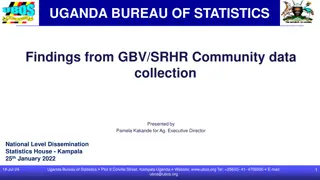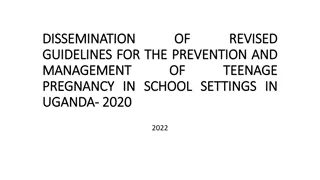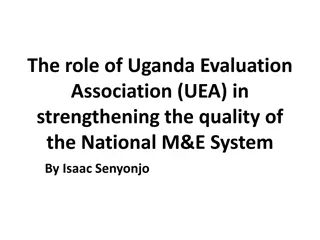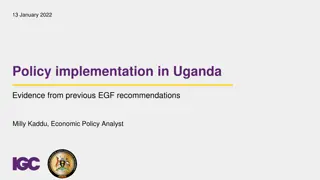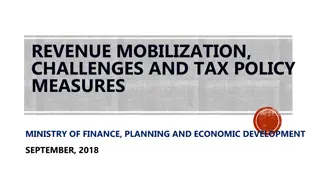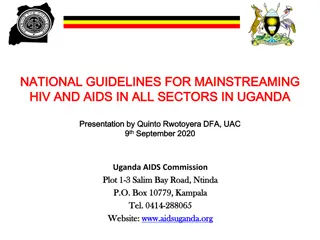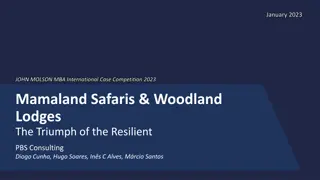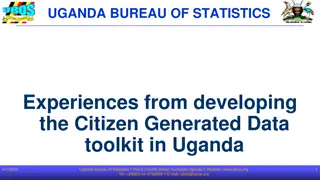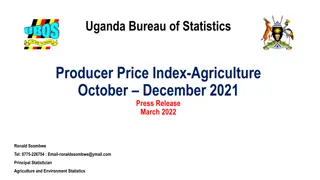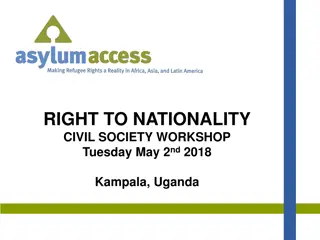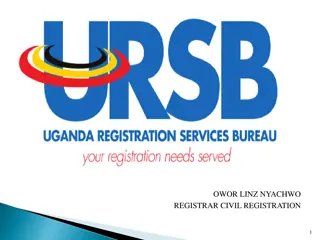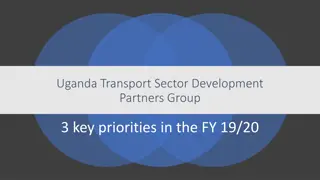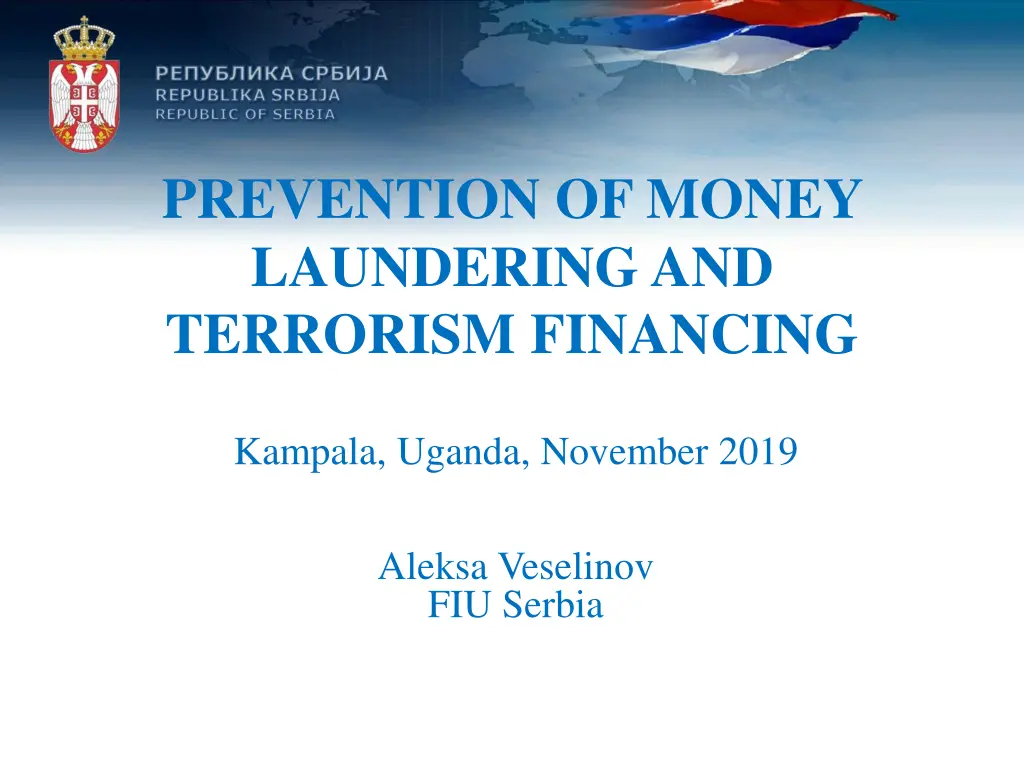
Preventing Money Laundering and Terrorism Financing in Uganda
Learn about the efforts towards preventing money laundering and terrorism financing in Uganda, including the role of the Administration for the Prevention of Money Laundering, financial intelligence gathering, obliged entities, analysis of suspicious transactions, and the powers of the Anti-Money Laundering Authority.
Download Presentation

Please find below an Image/Link to download the presentation.
The content on the website is provided AS IS for your information and personal use only. It may not be sold, licensed, or shared on other websites without obtaining consent from the author. If you encounter any issues during the download, it is possible that the publisher has removed the file from their server.
You are allowed to download the files provided on this website for personal or commercial use, subject to the condition that they are used lawfully. All files are the property of their respective owners.
The content on the website is provided AS IS for your information and personal use only. It may not be sold, licensed, or shared on other websites without obtaining consent from the author.
E N D
Presentation Transcript
PREVENTION OF MONEY LAUNDERING AND TERRORISM FINANCING Kampala, Uganda, November 2019 Aleksa Veselinov FIU Serbia
Administration for the Prevention of Money Laundering An administrative authority within the Ministry of Finance Serbia s Financial Intelligence Unit
Financial intelligence Gathering Analysis Dissemination
APMLs work Based on STRs At the initiative of another state authority Based on APML s information At the initiative of a foreign FIU
Obliged entities Banks Lawyers Real estate agents Exchange offices Public postal operator Broker-dealer companies Organizers of games of chance in casinos Accountants Investment funds Payment institutions Tax advisors Organizers of games of chance on the internet Voluntary pension funds Factoring companies Auditors Leasing companies Notaries Traders in virtual currencies Money transfer agents Insurance companies
A suspicious transactions Analysis of data contained in databases Additional data obtained from obliged entities, if necessary Databases of other state authorities A request to FIU Dissemination of reports
Initiative of a state authority Well-explained and in written form Article 77 of AML/CFT Law
APMLs Powers Monitoring financial operations of a customer Temporary suspension of a transaction Requesting data from obliged entities
Monitoring financial operations of a customer 3 to 6 months, at the longest It usually precedes a suspension of transaction Obliged entity must act according to APML s instructions.
Temporary suspension of a transaction 72 + 48 hours Written order In urgent cases, verbal order.
INTERNATIONAL COOPERATION Egmont Group 174 members APML s powers apply (exchange of data, monitoring, suspension of a transaction) Member of MoneyVal Committee Observer in EAG
International cooperation Mostly with countries in the region and countries with large diaspora Highly-rated cooperation
Strategic Documents National Risk Assessment of Terrorist Financing with Action Plan National Risk Assessment of Money Laundering with Action Plan National Strategy Against Money Laundering and Terrorism Financing with Action Plan
National Risk Assessment of Terrorist Financing Risk: MEDIUM Highest level of threat: FOREIGN TERRORIST FIGHTERS
National Risk Assessment of Money Laundering Overall risk: MEDIUM The most vulnerable sectors: FINANCIAL: banks, exchange offices and payment service providers NON-FINANCIAL: real estate, games of chance and accounting agencies
National Risk Assessment of Money Laundering Predicate criminal offenses classified as high- level threats: tax offenses, abuse of the position of the responsible person, abuse of office and illicit production and circulation of narcotic drugs.
Financial Intelligence Unit Serbia 33 ML convictions in 2018 and 2019. TF convictions: 1 in 2018 Search engine for UN designated persons and domestic designated persons on the APML website.

